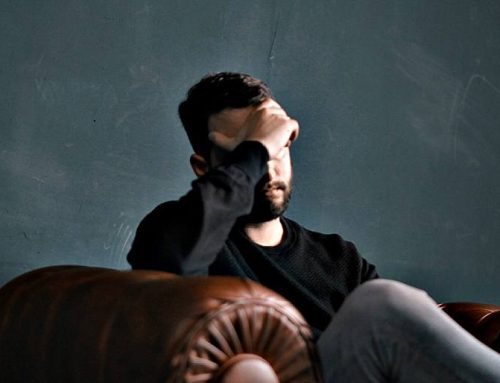There’s a lot of talk about trauma these days. People generally recognize the traumas of childhood neglect, sexual abuse, and violence. But very few truly acknowledge—or understand—how deeply traumatic the loss of a loved one can be.
In my experience as a therapist, grief is the most unacknowledged form of trauma. It’s something everyone will inevitably face, yet it’s often the least resolved issue I see in my clients.
It happened in my own family. After my two older sisters were born, my mother had a son. Tragically, she had been prescribed Thalidomide—this was 70 years ago—a drug given to pregnant women to combat nausea, but later discovered to cause severe birth defects.
My mother gave birth to the son my father had always wanted. But due to the effects of Thalidomide, he was born with deformities, and just three days later, he died of jaundice.
On his deathbed, my father confessed to me that he had never forgiven my mother for taking Thalidomide. His resentment slowly eroded their relationship and pushed them further apart.
My mother was devastated. But with two young children to care for, there was no space or time for her to grieve. She felt guilt, shame, and began to struggle with depression—what I now recognize as unresolved grief—and eventually, alcohol.
Shortly after that, I was born—an accident, in the wake of my mother’s grief.
Over the years, I’ve heard many such stories in my practice.
Losing a child is arguably the most painful form of grief. And yet, it’s so often overlooked, minimized, or left unresolved. But it’s not just the loss of a child that is traumatic—it’s also the loss of a parent, a sibling, a spouse, a friend, or a pregnancy through miscarriage or stillbirth.
Grief can be complicated by many factors: the age of the deceased, the suddenness or nature of the death, insecure attachment to the deceased, unresolved conflicts, suicide, homicide, natural disasters, or a prolonged illness like Alzheimer’s. The absence of support or social acknowledgment can also make healing more difficult.
Because of these factors, grief can become delayed, complicated, and persist beyond what is considered a predictable or healthy emotional response. It can even be misdiagnosed as depression—leaving people without the care they truly need.
One of the most common complications I see is disenfranchised grief, also known as hidden grief.
This happens when a loss isn’t openly acknowledged or validated—when someone’s grief is seen as unimportant or insignificant by others. Examples include the loss of a pet, a miscarriage, a stillbirth, an abortion, the loss of a body part, or the death of a non-blood-related loved one.
This was my mother’s experience. Her grief was hidden and invalidated. It was never acknowledged by my father, misdiagnosed by her doctor, and numbed with Valium. No one talked about it. She had nowhere to turn.
Grief can also remain disenfranchised when a loss is stigmatized—like in cases of suicide, homicide, divorce, or accidental death—leaving the bereaved without the support they need.
In some cases, grief is delayed. It can surface months or even years later, after the immediate responsibilities and distractions have faded.
Then there’s survivor’s guilt, where the shame of surviving a tragedy—whether war, natural disaster, or a fatal accident—can deeply complicate the grieving process.
While Elizabeth Kübler-Ross gave us the widely known model of the five stages of grief—denial, anger, bargaining, depression, and acceptance—the path is rarely linear.
These stages offer a shared language and framework that can help normalize our feelings. But they can also become prescriptive, leading people to feel like there’s a “correct” way to grieve—or a timeline they must follow. If their grief doesn’t fit the model, they may feel like something is wrong with them.
Many people don’t realize they’re suffering from unresolved grief. Often, they seek therapy for interpersonal or emotional difficulties, unaware that at the root lies a deep, unprocessed loss.
Grief is complicated. If it remains unresolved, it can manifest as depression or anxiety.
I believe we struggle with grief for two primary reasons: first, because of our collective denial of death, and second, because many people lack the emotional tools to process feelings effectively.
In Western culture, we often act as though death is something that happens to other people. Without a personal understanding of death—or a sense of meaning or peace about what comes after—it can feel like a punishment from an unfair God.
I remember, in my early twenties, meeting a man who talked about his faith—until his father died. Seeing his mother so devastated, he lost his belief. I said to him, “Wait a second—when Mary’s husband down the street died, you still believed. When Joan’s husband died, that didn’t shake your faith. But when your father died, suddenly God became unfair? How does that make sense?”
Finding meaning in personal loss is one of life’s great challenges. As David Kessler said, “Life is an achievement, and death is part of that achievement.”
Secondly, because so many people have a difficult relationship with their emotions, they often don’t allow themselves to grieve. If someone believes that crying, feeling empty and sad, or taking time off is a sign of weakness, that belief can interfere with healing.
So I invite you to look at the losses you’ve experienced. If anything still feels unresolved, come talk to us.
Our counsellors have targeted, compassionate strategies to help you navigate and resolve your grief.




